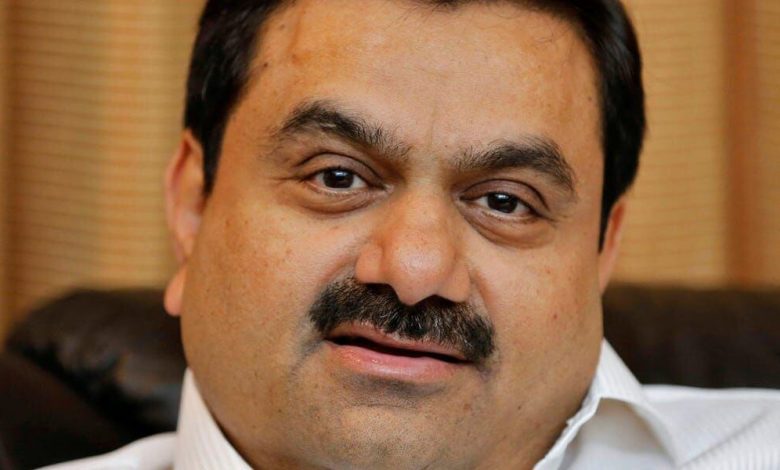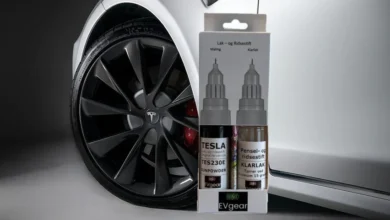The Adani Group’s “House of Cards”: Hiding Exorbitant Fees For Wall Street Banks

International banks have exploited the Adani Group’s ravenous thirst for debt. Currently, the client is charged with committing “the biggest fraud in business history.”
After this Group successfully acquired a cement company from Swiss company Holcim for $10.5 billion last summer, Gautam Adani, the conglomerate’s founder and the fifth-richest person in the world at the time, remarked to the Economic Times about his “relationship banks” — Barclays, Standard Chartered Bank, and Deutsche Bank— had “completely funded” the transaction. Also checkout beitragpost latest news in USA.
Following the release of the 32,000-word study from short-seller Hindenburg Research, which asserts that this Group and the significant principals have been involved in a fraud and manipulation scheme of stock market with long history, such connections may come under strain. (The Group claims it is thinking to file a lawsuit against the company of investment and denies any misconduct.)
The Adani Group, which started as a commodities trade company in the 1980s, has expanded to $23 billion. It includes seven traded companies that are publicly operating in India’s energy, manufacturing, and logistics sectors. The family business has a close connection to PM Narendra Modi. It also links that loans from the country’s banks have supported the firm’s acquisition-driven expansion.

However, in past years, financial institutions with headquarters in the United States and Europe have stepped forward to assist the Group in raising tremendous dollars through shares, refinancings, and currency debt offers of U.S. Along with the “relationship,” banks of the Group, Bank of America Merrill Lynch, Credit Suisse, and J.P. Morgan have all facilitated transactions due to Adani-owned businesses.
According to financial market data source Refinitiv, six distinct Adani Group firms raised roughly $10 billion. Between 2015 and 2021, these were selling U.S. dollar securities backed by European and U.S. financial institutions.
14 of the 18 bond issuances—or a total of 18—took place from 2019 to 2021. Half of the loan was raised by one of such businesses, Special Economic Zone and Adani Ports, which benefits from favorable tax status.
The debt acquired in Rupees and different currencies by the Adani Group is not present in these numbers. As of the start of 2022, the conglomerate has over $27 billion in unpaid liabilities. A little over 40% of the Adani companies issued debt from 2020 to 2022 was by the State Bank of India.
The core of Hindenburg Research’s fraud claims is leverage. As a means of money laundering and accounting fraud, the Adani Group corporations allegedly lend money to one another. Hindenburg focused on many loans made between Adani organizations. It includes a $253 million debt from a shell corporation in Mauritius that seems to be under the control of Guatam’s brother, Vinod, to an Adani-owned corporation, which then loaned $138 million to a public trade entity. Another case included the mysterious $1 billion in funds. Emerging Market Investment DMCC, a company domiciled in the UAE, lent to Energen.
One unidentified member of London-based Elara India Opportunities, which oversees several funding invested in Adani enterprises, told Hindenburg that the company was “a house of cards; it’s all fueled on debt.”
Worries about its debt burden have dogged the Adani Group for a long time. A 2019 investigation by the Indian Scroll into the web of similar party agreements within the Adani Group detailed how these companies owned by Adani “saw several transfers of cash amongst themselves as being in the form of repayments and loans.” This Group is “seriously overleveraged,” according to a study released last year by the CreditSights division of the Fitch Group.
This Group has a talent for getting money from investors. “My ventures are quite bankable, “He spoke to Forbes Asia in 2014. One of the draws was the conglomerate’s emphasis on solid infrastructure tasks with steady cash flows. “Banks are ready to adopt a long perspective because these are assets that the government needs and have guaranteed returns, “K. Shankar, an analyst for Mumbai-based financial services company Edelweiss Capital, informed Forbes.
Tim Buckley who has been researching this Group for more than a decade, claims that Wall Street only really warmed up to Adanis when he decided to seek financing for Adani Green Energy, the conglomerate’s renewable energy corporation. It’s possible that funds earned by Adani Ports or Adani Green Energy or “go to Adani Enterprises and Adani Power. After that, they proceed towards developing additional coal-powered coal mines or even more power plants for future use and benefit.
As per Hindenburg, an organization with its headquarters in Cyprus called New Leaina Investments owned more than $420 million worth of Green Energy owned by Adani shares as of June 2021. It is public that executives from the Adani Group control this company. As per Hindenburg, Adani Green could avoid Indian requirements requiring listed companies. It is to keep a non-promoter float publicly of about 25% due to its offshore stake.
The Stop Adani campaign started with the Adani Group’s proposal to build the biggest coal mine in the world. The parent group appears to continue doing business with Bank of America Merrill Lynch, J.P. Morgan, Credit Suisse, Standard Chartered, Deutsche Bank, and Barclays. It is despite having sworn off funding the contentious project.
According to Pablo Brait, a rights activist with the Australian ecologic finance group Market Forces, “Adani’s participation in new huge heat coal mines in the midst of the environmental crisis has not been sufficient to reassure some big banks, such as Deutsche Bank, Barclays, and Standard Chartered to cut ties.” We can just hope that these allegations will finally make all banks aware of the risks associated with funding to Adani.
Observing how bankable this Group is in the coming months will be interesting. The Adani Group was not a topic of conversation for Barclays, JP Morgan, Deutsche Bank, or Bank of America. Due to client privacy concerns, Standard Chartered Bank does not discuss individual client relationships. At the moment of publication of this, Credit Suisse had also not reacted.
Source : Forbes





